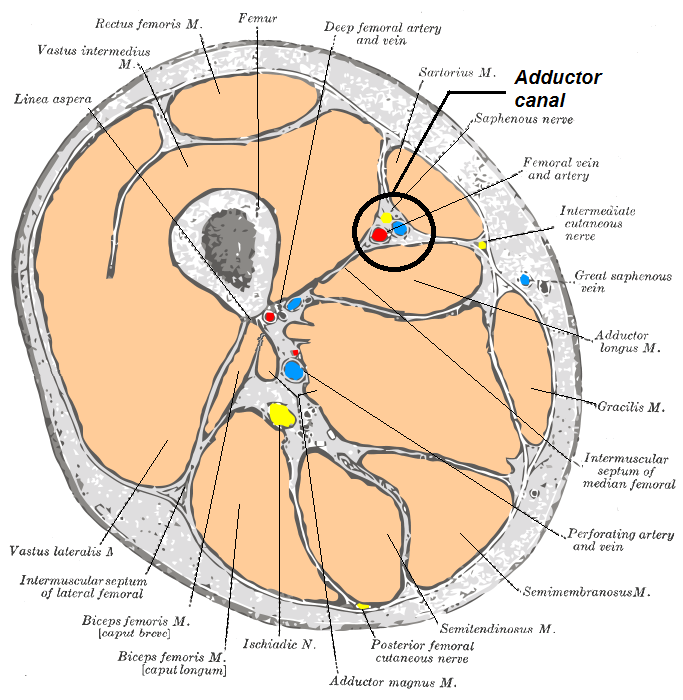Difference between revisions of "ADDUCTOR CANAL"
(Imported from text file) |
|||
| Line 11: | Line 11: | ||
==Reference(s)== | ==Reference(s)== | ||
R.M.H McMinn (1998). Last’s anatomy: regional and applied. Edinburgh: Churchill Livingstone. | R.M.H McMinn (1998). Last’s anatomy: regional and applied. Edinburgh: Churchill Livingstone. [https://amzn.to/3xyB8Wc Get it on Amazon] | ||
<br/>Gray, H., Carter, H.V. and Davidson, G. (2017). Gray’s anatomy. London: Arcturus. | <br/>Gray, H., Carter, H.V. and Davidson, G. (2017). Gray’s anatomy. London: Arcturus. | ||
Revision as of 20:53, 17 February 2023
SUMMARY
1. Also known as the Hunter's canal. 2. Formed in the gutter b/w the vastus medialis & adductor longus (superiorly) and vastus medialis & adductor magnus (inferiorly). The sartorius forms its roof.
3. Continues from the apex of the femoral triangle.
4. Roofed by fascia which contains the subsartorial plexus.
5. Contents - femoral artery, vein, saphenous nerve. In the superior part - nerve to the vastus medialis.

Image: Häggström, Mikael (2014). Medical gallery of Mikael Häggström 2014. WikiJournal of Medicine 1 (2). DOI:10.15347/wjm/2014.008. ISSN 2002-4436. [Public domain], via Wikimedia Commons [Accessed 20 Apr. 2019].
Reference(s)
R.M.H McMinn (1998). Last’s anatomy: regional and applied. Edinburgh: Churchill Livingstone. Get it on Amazon
Gray, H., Carter, H.V. and Davidson, G. (2017). Gray’s anatomy. London: Arcturus.